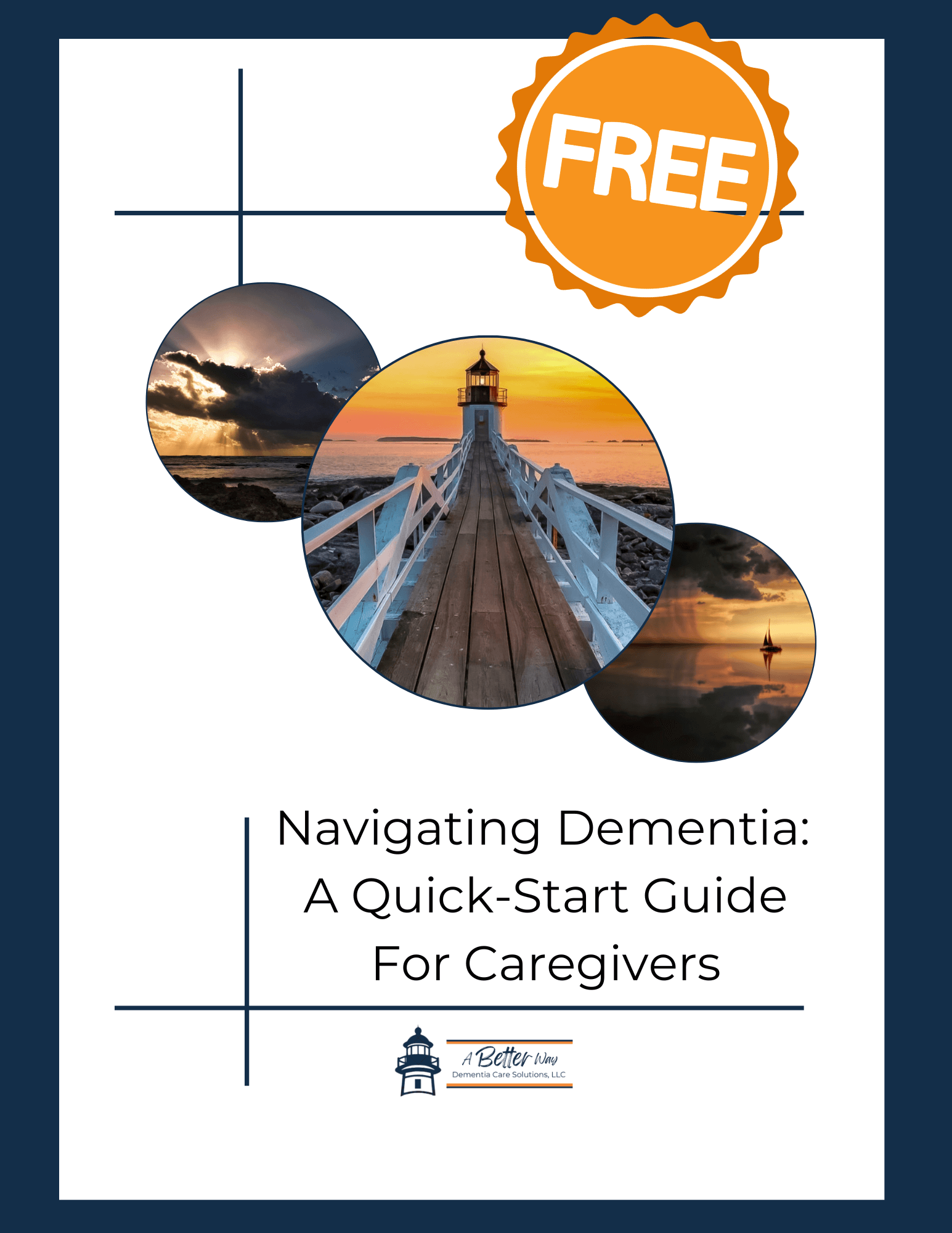
You’ve probably noticed it-your person with dementia used to love breakfast, but now they barely touch their food. Or maybe dinner has turned into a battle of refusals and frustration. As a caregiver, few things feel more discouraging than watching someone you care for lose interest in meals or struggle with eating altogether.
If you’ve ever felt confused, overwhelmed, or even helpless when it comes to nutrition, you’re not alone.
Nutrition isn’t just about what’s on the plate. For someone living with dementia, what they eat (or don’t eat) can directly impact their mood, energy, ability to think clearly, and even their risk for falls or infections. As dementia progresses, changes in the brain can make eating difficult-from forgetting how to use utensils to experiencing changes in taste or swallowing.
But here’s the good news: you don’t need to be a nutritionist or gourmet chef to make meaningful changes. Even small, thoughtful adjustments can help improve the quality of life for both you and the person you care for.
In this post, we’ll explore how nutrition affects brain health and behavior in dementia care. You’ll learn how poor nutrition can lead to increased confusion, agitation, or even accidents-and what you can do to help. I’ll also offer practical, caregiver-friendly tips to support healthy eating without adding more stress to your day.
You deserve support, and this post is here to help you feel more confident and less overwhelmed.
Let’s take this one step at a time.
Meet Them Where They Are
As dementia progresses, the act of eating-something so basic and essential-can become incredibly complex. It’s not just about being hungry or full anymore.
Your person might refuse food they used to love. They might struggle to chew or forget how to use a spoon. They may become suspicious that the food is poisoned or not for them. These are heartbreaking moments, and they can leave you feeling frustrated, guilty, and exhausted.
You might find yourself thinking:
• “Why won’t they eat?”
• “I must be doing something wrong.”
• “They’re just being stubborn.”
But the truth is, the brain changes caused by dementia often interfere with the very systems that control hunger, satiety, motor planning, and even sensory processing (Alzheimer’s Association, 2022). That means the problem isn’t you-and it isn’t them either. It’s the disease.
Malnutrition is common in people with dementia. Studies show that up to 45% of individuals with Alzheimer’s disease are at risk for significant weight loss and nutritional deficiencies (Hanson et al., 2013). And poor nutrition is linked to more hospitalizations, higher fall risk, and faster cognitive decline.
Here’s the shift: instead of expecting them to eat “normally,” we can learn to meet them where they are-physically, emotionally, and cognitively.
That might mean offering foods that are easier to chew. Serving meals in smaller portions. Choosing colorful plates or reducing noise at mealtime. It might even mean sitting and eating with them, even if you’re not hungry.
When we stop trying to force a “normal” experience and start working with their reality, everything gets a little easier-for both of you.
You’re not failing. You’re learning to care differently.
Educate with Heart: The Role of Nutrition in Dementia Care
Nutrition affects nearly every aspect of health-but in dementia care, it plays a particularly powerful role. Here’s why:
- Brain Health and Cognitive Function
Certain nutrients, especially omega-3 fatty acids, antioxidants, and B vitamins, support brain health and may help slow cognitive decline. The MIND Diet (a combination of the DASH and Mediterranean diets) has been associated with reduced risk of developing Alzheimer’s disease-even when not followed perfectly (Morris et al., 2015).
• Leafy greens, berries, whole grains, nuts, and olive oil are particularly protective.
• A nutrient-rich diet can improve attention, mood, and day-to-day function.
2. Behavior and Agitation
Dehydration and hunger can worsen confusion, aggression, or restlessness. If your person is pacing, yelling, or refusing care, they may simply be thirsty or hypoglycemic. Offering water or a small snack can calm the storm quickly.
• Protein helps stabilize blood sugar and mood.
• Staying hydrated can reduce constipation, UTIs, and delirium (Thomas et al., 2008).
Physical Safety and Fall Prevention
Poor nutrition contributes to muscle loss (sarcopenia), fatigue, and dizziness-all major fall risks in people with dementia. Ensuring adequate calories and protein can help maintain strength and mobility.
• Aim for snacks like Greek yogurt, nut butters, or smoothies.
• Consider protein shakes or fortified foods if weight loss is an issue.
Caregiver-Friendly Nutrition Tips
• Use colorful plates to help them see the food (blue plates can increase intake).
• Limit distractions like TV or clutter during meals.
• Offer hand-held or finger foods like sandwiches, cut-up fruit, or muffins.
• Use adaptive utensils to promote independence.
• Serve familiar foods that evoke positive memories.
• Offer small meals often if big meals feel overwhelming.
Emotional Insight + Transformation
Let’s pause for a moment and imagine what it would feel like if mealtimes didn’t feel like a struggle.
What if your person smiled when you brought them a favorite snack? What if they ate more when you played their favorite music during lunch? What if you felt less anxious and more connected during these daily moments?
This is the transformation that small, nutrition-focused shifts can create. It’s not about a perfect diet-it’s about creating moments of dignity, comfort, and connection.
Food is emotional. It’s tied to our memories, our culture, and our identity. When we help the person we care for enjoy food again-even in small ways-we’re doing something incredibly meaningful.
You’re already showing up with love and care every day. That matters. And you don’t have to do this alone.
Practical Next Steps
Here are a few simple things you can try today:
• Offer water with a splash of juice or a Liquid I.V.™ electrolyte mix to support hydration.
• Switch to red or blue plates to help with visual contrast.
• Serve meals in smaller portions on a schedule.
• Create a calm, quiet mealtime environment.
• Keep favorite snacks on hand (soft granola bars, fruit cups, etc.).
If you’re not sure where to start, try one small change and observe the response. Progress is still progress.
Product Recommendations
• Liquid I.V. Electrolyte Drink Mix (Variety Pack)- Helps maintain hydration when water intake is low. Buy it on amazon
• Ninja Mega Kitchen System – Makes blending smoothies and pureed foods easy.
• Red Dinnerware Set – Increases visual contrast for better focus during meals.
• Leakproof Water Bottle with Time Marker – Encourages steady hydration throughout the day. buy it on amazon
• Adult Bibs (Men & Women) – Protects clothing with dignity.
Men's-
Women's-
🫐FREE Resource For You🫐
Want more caregiver tips like this sent to your inbox each week? Subscribe to my newsletter and receive a free resource: “Mealtime Made Easier: Nutrition Tips for Dementia Caregivers.”
You’ll get practical support, gentle encouragement, and expert insight-all tailored to the real-world needs of dementia caregivers like you.
Notes:
• Alzheimer’s Association. (2022). Nutrition and hydration. Retrieved from https://www.alz.org
• Hanson, L. C., Ersek, M., Gilliam, R., & Carey, T. S. (2013). Oral feeding options for people with dementia:
A systematic review. Journal of the American Geriatrics Society, 61(8), 1386–1393.
• Morris, M. C., Tangney, C. C., Wang, Y., et al. (2015). MIND diet slows cognitive decline with
aging. Alzheimer’s & Dementia, 11(9), 1015–1022.
• Thomas, D. R., Cote, T. R., Lawhorne, L., et al. (2008). Understanding clinical dehydration and its
treatment. Journal of the American Medical Directors Association, 9(5), 292–301.
Affiliate Disclosure
A Better Way - Dementia Care Solutions, LLC participates in the Amazon Associates Program, which means we earn a small commission when you buy through links on our site, at no extra cost to you. We only recommend products that we believe can help caregivers on their journey.
Disclaimer
The information contained in this blog post is for general educational and informational purposes only and should not be construed as legal advice, financial advice, health advice, or medical advice. The information provided is not a substitute for advice from a qualified professional who is aware of the facts and circumstances of your individual situation. We expressly recommend that you seek advice from a professional familiar with your specific situation.
Want to keep figuring this out together?
Subscribe to Finding Our Way in Dementia Care and get honest stories, helpful tips, and gentle support delivered to your inbox every week. Just real talk, grounded care, and space to breathe.
Subscribe to Finding Our Way in Dementia Care and get honest stories, helpful tips, and gentle support delivered to your inbox every week. Just real talk, grounded care, and space to breathe.
Kind truth. Clear steps. Warm guide.

















0 Comments